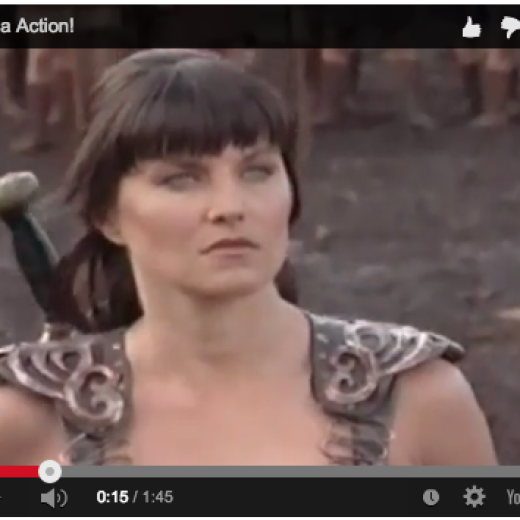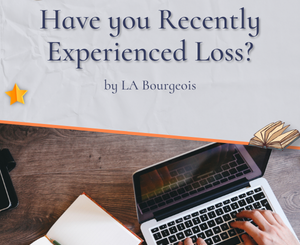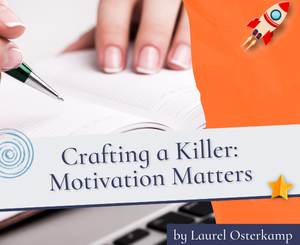Reading to Write by Catharine Bramkamp
 Let’s welcome back monthly columnist Catharine Bramkamp as she shares with us “Reading to Write.” Enjoy!
Let’s welcome back monthly columnist Catharine Bramkamp as she shares with us “Reading to Write.” Enjoy!
***
Writers read, it’s the gateway activity for all writers. Nothing drives an author to drink than a rap star bragging he or she is writing a book but can’t be bothered to read one.
Not you, you assure me, I read 100 books a year. Excellent! But so what? Racking up the titles is one thing, enjoying them is another thing but there is a third thing: use the books you read to contribute to the books you write.
The Mini-MFA Program
How?
Start a book journal.
I was inspired to keep a book journal after reading a blog suggesting we make a collage along with notes expressing our reaction to books like Lessons in Chemistry or The Goldfinch.
I modified this idea and simply began writing a couple of sentences about each book I read.
Since 2017, I’ve been recording the books I read to keep track and to prevent purchasing a book I’ve already read which is a hazard of frequenting used book stores and Friends of the Library sales (I’m a donor as well).
Besides having everything to do with writing, creating a list along with a short journal on your read books can serve as mini-MFA program without the lectures or assignments.
All you need to do is pay attention.
What to write?
Entries From A Reading Journal
Here are a couple of my unedited notes from this year’s reads – so far –
Checkout 19- Claire-Louise Bennett
I bought this at the book fair in Berkeley, thinking it would be a new take and book on the Irish imagination.
It was interesting, but nothing I could really get into. I had better luck with Ulysses. But the author won awards for her work. I will move it along.
A Rule Against Murder – Louise Penny
I had read it before, but all I remember is the bathroom wall scribble that damaged the reputation of the Daughter who is murdered by a falling statue. The rest was a pleasure to read even if apparently I was reading it again.
Midnight’s Children – Salman Rushdie.
I admit I did not dive in and read every word, because I just wanted to have read the book.
But the language is wonderful, very rich and evocative, and the density of the thoughts and experiences in the book reflect India, the dense, rich, overwhelming life of it.
So yes, it’s good and I’m glad to have read it. I finished it Monday night, March
Albion – Peter Ackroyd
Found at Strand in NYC and read while still in New York.
Dense, many essays attributing anything in England as a creative influence. So interesting, but not conclusive. Am glad I read it. Hardcover and heavy which shows how insane about books I am.
Those are indulgent and quick notes on the books. How can this idea be elevated to that MFA level, so the notes actually help you achieve your writing goals?
Create a handy list of questions to ask of each book:
- What did you like best?
- What was unique?
- What bothered you?
- What descriptions or sentences stood out?
If you are working on a project, allow your reading to help you manage your own plots and characters.
- Did you encounter an interesting character in a recent novel?
- Can you consider that character and apply those interesting attributes to your own?
- Did you already figure out who done it?
- Why?
- Did the author telegraph too much too soon?
- Is that something you can avoid in your own novel?
- Do you see a pattern in your reading?
- What novels, genres and non-fiction have you been drawn to?
Reading patterns can predict directions in writing: a new genre, a historical subject that could star in your next book or at least serve well as the second plot line.
A Deeper Dive Into The Journal Entries
With that in mind, here are more useful notes from each of the above listed books
Checkout 19- Claire-Louise Bennett
I bought this at the book fair in Berkeley, thinking it would be a new take on the Irish imagination. It was interesting, but nothing I could really get into.
Why was the heroine so detached making it difficult to relate to her.
Why is Ulysses, obviously a more difficult book, a better expression of Irish imagination?
Why did this work win awards?
A Rule Against Murder – Louise Penny
I had read it before, but all I remember is the bathroom wall scribble that damaged the reputation of the daughter who is murdered by falling statue. During this read, I noticed different features of the book, how it felt more contrived than I recalled, and how much of the plot and angst turned on what I felt was a trivial action.
Is a seemingly trivial moment enough to carry a full mystery?
Would I have plotted in more motive to better justify the method?
Midnight’s Children – Salman Rushdie.
I admit I did not dive in and read every word, because I just wanted to have read the book. But the language is wonderful, very rich and evocative, and the density of the thoughts and experiences in the book reflect the dense, rich, overwhelming life of India.
A good idea is to copy out the sentences that show the teaming overwhelm of Indian cities.
I would also highlight some famous lines.
As I mentioned, I did not delve completely into the book, did that mean I missed meaning and important themes? Likely.
Albion – Peter Ackroyd
Found this book at Strand in NYC and read while still in New York. It is a collection of essays that ended up attributing anything found in England from the food to the weather as a creative influence.
I would ask more questions about the thematic approach of this collection.
If everything counts as inspiration and contributes to the imagination of British writers, is there anything in England or the English experience that has NOT contributed to British art?
Give book journaling a try for six months.
I have a notes program on my phone and just record the book title, author and my thoughts.
As you have seen they are not always coherent or beautifully written but just a couple of sentences will do the job.
You can expand as needed, or even re-read if there is something in a book that will help you better write your own.
Happy Reading!
***
Want to read more articles like this one Writer’s Fun Zone? Subscribe here.
***
ABOUT THE AUTHOR
 Catharine Bramkamp is a successful writing coach, Chief Storytelling Officer, former co-producer of Newbie Writers Podcast, and author of a dozen books including the Real Estate Diva Mysteries series, and The Future Girls series. She holds two degrees in English and is an adjunct university professor. After fracturing her wrist, she has figured out there is very little she is able to do with one hand tied behind her back. She delights in inspiring her readers.
Catharine Bramkamp is a successful writing coach, Chief Storytelling Officer, former co-producer of Newbie Writers Podcast, and author of a dozen books including the Real Estate Diva Mysteries series, and The Future Girls series. She holds two degrees in English and is an adjunct university professor. After fracturing her wrist, she has figured out there is very little she is able to do with one hand tied behind her back. She delights in inspiring her readers.






